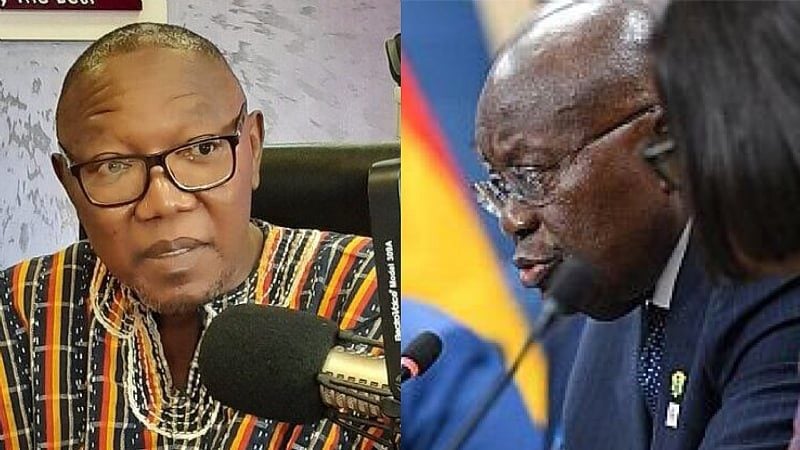In recent political discussions in Ghana, Dr. Clement Apaak, the Member of Parliament for Builsa South, has raised concerns about the potential fallout between President Nana Akufo-Addo and his Vice President, Dr. Mahamudu Bawumia, particularly regarding the latter’s stance on significant policies such as the E-levy and betting tax. Dr. Apaak suggests that should President Akufo-Addo become aware of Bawumia’s positions on these issues, he might consider the Vice President’s views a betrayal of party principles, thereby retracting his support for Bawumia’s presidential ambitions. This remark underscores the complex dynamics at play within the ruling New Patriotic Party (NPP) as political alliances and expectations begin to shift in anticipation of upcoming elections.
This speculation emerged amid a public confrontation between NDC’s flagbearer, John Dramani Mahama, and President Akufo-Addo, where the president criticized Mahama for allegedly neglecting critical national issues. Akufo-Addo specifically targeted Mahama’s previous commitments regarding the Free Senior High School (SHS) policy. In a responsive statement, Mahama accused the president of either being misinformed or deliberately ignoring his previously communicated positions on the Free SHS policy and the ongoing galamsey (illegal mining) crisis. This exchange highlights the contentious nature of political discourse in the country, especially as the electorate becomes increasingly focused on accountability and policy effectiveness.
Dr. Apaak took to social media to express his thoughts on the escalating tensions between the president and his vice. His comments on X (formerly Twitter) suggested that President Akufo-Addo might be oblivious to Bawumia’s views on crucial policies, including the E-levy, betting tax, and the COVID-19 levy. The implication of Dr. Apaak’s tweet is significant; if the president becomes aware of what he perceives as inappropriate deviations from party lines by his running mate, it could impact Bawumia’s prospects and the political cohesion within the NPP. Such tensions may foreshadow potential rifts in the party as different factions vie for influence and clarity on key policy positions.
The E-levy and betting tax are particularly contentious issues in Ghanaian politics. The E-levy, which introduced a tax on electronic financial transactions, has been a hotbed of debate, with opponents arguing that it places an undue burden on citizens. Conversely, proponents within the NPP argue that it is necessary for enhancing national revenue generation. Bawumia previously held prominent roles in advocating for technological advancement in the financial sector but may face challenges balancing this image with public sentiment against heavy taxation. Dr. Apaak’s warnings about the impact of these policies on Bawumia’s presidential campaign suggest that any misalignment with the party’s broader stance could have dire consequences for him.
The ramifications of this internal political strife are significant not only for Bawumia but for the NPP as a whole, especially as Ghana gears up for future elections. Trust and camaraderie within the party structure are essential for a successful campaign, and revelations of discord could undermine the NPP’s unified front. If President Akufo-Addo chooses to distance himself from Bawumia due to these disagreements, it may result in broader implications for party loyalty and voter perception. The dynamics of this relationship underscore how critical it is for political leaders to align on policy positions to maintain party integrity and appeal to their electorate.
As the political landscape continues to evolve, these discussions highlight the need for transparency and consensus within party ranks. Dr. Apaak’s comments serve as a reminder that the political arena in Ghana is fraught with challenges stemming from conflicting interests and public expectations. Going forward, the strategies that leaders like President Akufo-Addo and Dr. Bawumia adopt will be crucial in addressing these concerns while reinforcing the party’s vision. In a period marked by heightened awareness of governance issues among citizens, the ability to reconcile differences and present a united front will likely play a vital role in the NPP’s ongoing political aspirations. Thus, the upcoming months will be crucial for both the party and its leadership as they navigate these potential pitfalls.














